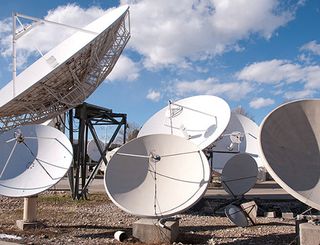Broadcast-Friendlier STAVRA Bill Circulated

A new version of the Satellite Television Access and Viewer Rights Act (STAVRA), which is scheduled to be marked up Sept. 17 in the Senate Commerce Committee, was circulated late Friday, according to a copy obtained by B&C.
The draft dropped retrans reforms opposed by TV stations in an effort to get the must-pass bill passed.
As previously reported, the draft was shorn of the "Local Choice" retrans remake proposal, which had been backed by cable and satellite operators while broadcasters were fighting it tooth and nail.
A copy of the managers amendment from committee cochairs Jay Rockefeller (D- W. Va.) and John Thune (R-S.D.) — essentially a substitute bill — obtained late Friday had been pared back even further, likely to a form broadcasters can live with.
A spokesperson for the National Association of Broadcasters said it was "reserving comment until [NAB has] a chance to fully review the language in the manager's amendment," but added: "From what we understand, the Senate Commerce legislation appears to be much less hostile to free and local broadcasting than the STAVRA draft."
Other retrans reform elements were absent in the draft including: 1) authorizing the FCC to seek documents (like contracts) from broadcasters and MVPDs during retrans impasses to determine whether the parties had committed violations of good faith negotiations and 2) directing the FCC to conduct a rulemaking on whether certain practices, like blocking online video content, are a violation of good faith negotiations.
The good faith rulemaking language is less specific, directing that rulemaking "to review and update its totality of the circumstances test for good faith negotiations [to] ensure that such test encourages parties to a retransmission consent negotiation to present bona fide proposals on the material terms of a retransmission consent agreement during negotiations and engage in timely negotiations to reach an agreement.”
Broadcasting & Cable Newsletter
The smarter way to stay on top of broadcasting and cable industry. Sign up below
Still in the bill was the prohibition on joint retrans negotiations, but it no longer applies to joint negotiations by co-owned stations in separate markets, so essentially squares with a House-passed version of the bill NAB can live with, and which the FCC has already essentially established in a rulemaking earlier this year. The bill extends the compulsory license for another five years. The license allows satellite operators to import distant network affiliated TV signals and renews the FCC's authority to mandate good faith retrans negotiations.
A clean version of a satellite bill — a straight reauthorization of the license and good faith provisions — has already passed in the Judiciary Committee, and the final Senate version must be reconciled with the House-passed version, passed in both Houses and signed by the President or the license and FCC authority expire at the end of the year.
The further pared-down bill came following more broadcaster pushback on the remaining retrans provisions last week, including from the heads of the Big Four affiliate associations and African American-targeted broadcast network, Bounce TV, the latter in a letter to Senate leaders bearing the iconic names Andrew Young and Martin Luther King III.
Contributing editor John Eggerton has been an editor and/or writer on media regulation, legislation and policy for over four decades, including covering the FCC, FTC, Congress, the major media trade associations, and the federal courts. In addition to Multichannel News and Broadcasting + Cable, his work has appeared in Radio World, TV Technology, TV Fax, This Week in Consumer Electronics, Variety and the Encyclopedia Britannica.

